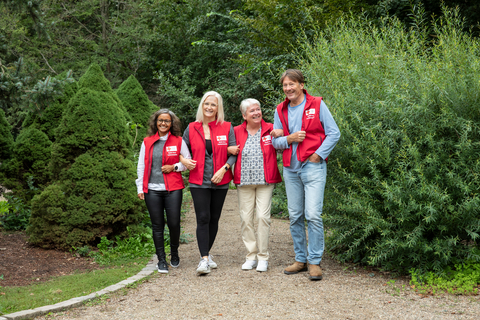
Why? The rationale
There are well-documented and significant gaps in research in NCDs during humanitarian crises, with little data and research capacity available, and with a disconnect between research and needs on the ground.
Too often, evidence-gathering is not an integral aspect of NGOs’ response to a crisis and the appetite for research into NCDs in humanitarian settings has been limited. There is a mismatch of interests between humanitarian organisations, often not concerned with research and publication, and academia, which is very strongly focused on the need to publish.
A platform is needed to share ideas and to identify what research is being done and where more effort is needed to bridge this gap, bringing together the right researchers, humanitarian actors and donors. Currently ‘there is no one-stop-shop to find information’ (Bootcamp participant). This will help to avoid duplication of effort as well as facilitating much better exchange of information about what works.
Discussion
Current research ideas are very linear and new ways of collecting and sharing data are needed. For example, the difficulties of ensuring credibility for ‘anecdotal evidence’ (Bootcamp participant) was acknowledged – how can this be published and acted upon?
The proposed platform would be a form of social media: connecting people with similar interests, facilitating conversations and the sharing of information and research, and demonstrating the benefits of collaboration to researchers and humanitarian actors who are looking for effective partnerships. It would also make clear to potential funders the need for investment in high-quality, cross-sector research that is both innovative and based on local need.
“This would be a ‘dating hub for projects!”
The vision underpinning the Hub is that all NGOs working in humanitarian settings are mandated and assisted to incorporate research into their regular activities. Separating research and action is to do both a disservice: they should go together.
Research will validate the need to prioritise humanitarian NCD action, and guide how this action can be most effective. This will then demonstrate clear fiscal incentives for funders to invest – both in collaborative research that is based on grassroot need, but also in initiatives that have been proven to have positive health outcomes. Funders may currently regard projects in humanitarian settings as too high risk.
because of political, logistical or security concerns – and this could give them the confidence to support longer-term initiatives. We need an NCD revolution – changing the way people think about NCDs, and making the case for more funding, research and action!
“A global alliance for generating evidence … is very compelling in a world where everyone is asking for evidence”
How? Campaign ideas
The stakeholder responsible for establishing the Hub- and the target of the campaign- is the WHO Global Coordination Mechanism on NCDs, which receives support from the WHO’s Collaborating Centres around the world. These Centres could host the Hub in turn, which would ensure global ownership. The technology sector would assist in the design and delivery of the Hub, and the users are researchers, donors and humanitarian actors.
The campaign focuses on the Global Coordination Mechanism as it has a multi-sectoral mandate and existing initiatives such as the Knowledge Action Network, which includes repositories of information on various topics links up well with the idea of a Hub. This goes beyond a library and will become a ‘marketplace of ideas – let’s do it together’ (Bente Mikkelsen, WHO).
A short campaign video was produced at the Bootcamp, using humour to highlight the need for a free, online, open-source Hub to connect funders, researchers and humanitarian actors By linking all the key constituencies including researchers, government, funders, and people with NCDs in humanitarian settings, this calls on the WHO Global Coordination Mechanism to take action on three key areas:
- better connection of issues and solutions;
- improved collaboration on and sharing of information and resources; and
- scaling evidence-informed initiatives that can create change.
The campaign message will centre on answering the question: ‘I have so little time and so little resource: on what should I focus and how should I do it?’ To encourage WHO to act, storytelling and humour at a multi-partner launch at World refugee Day 2020 was proposed.